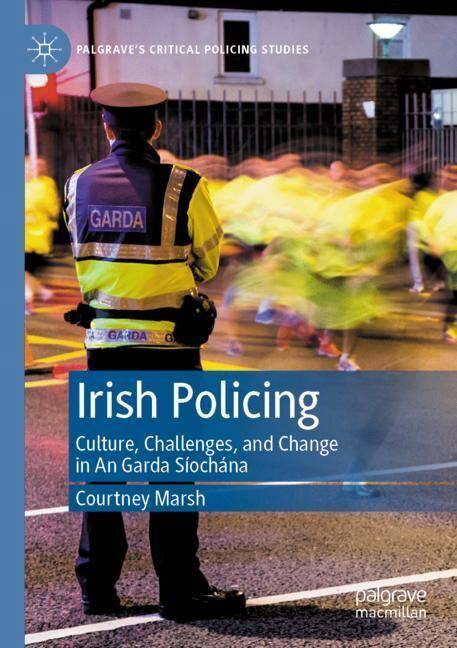
- Retrait gratuit dans votre magasin Club
- 7.000.000 titres dans notre catalogue
- Payer en toute sécurité
- Toujours un magasin près de chez vous
- Retrait gratuit dans votre magasin Club
- 7.000.0000 titres dans notre catalogue
- Payer en toute sécurité
- Toujours un magasin près de chez vous
Description
This book examines the organisational culture of the Irish police service, speaking in particular to those interested in policing organisations and organisational culture. It is set against a backdrop of considerations such as community policing, police accountability, the management of change in Irish policing, and where the Irish police situates itself in relation to police organisations internationally. An Garda Síochána, the national police service of the Republic of Ireland, has a stated community policing style which focuses on an interactive relationship with the community and results in a largely unarmed policing organisation which makes it different to most police organisations. Yet, the author argues that the organisational culture has prevented them from embodying community policing across the organisation. Exploring the organisation's historical context and how they are trained, this book draws on new research and data spanning 30 years including tribunals and reports to examine the organisational culture over time including potential misconduct, blame culture, and resistance to change within the organisation, in order to provide a more thorough understanding of a relatively unknown policing organisation.
Spécifications
Parties prenantes
- Auteur(s) :
- Editeur:
Contenu
- Nombre de pages :
- 255
- Langue:
- Anglais
- Collection :
Caractéristiques
- EAN:
- 9783031094279
- Date de parution :
- 05-10-23
- Format:
- Livre broché
- Format numérique:
- Trade paperback (VS)
- Dimensions :
- 148 mm x 210 mm
- Poids :
- 322 g

Les avis
Nous publions uniquement les avis qui respectent les conditions requises. Consultez nos conditions pour les avis.






